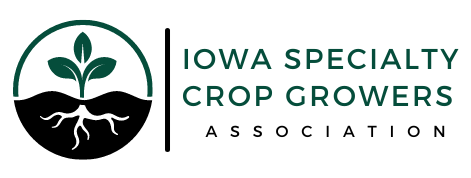Richard Jauron
Extension Horticulturist
515-294-3108
rjauron@iastate.edu
Gardening in containers is a great option for individuals living in apartments and homeowners who don’t have a suitable site for a traditional garden, according to horticulture specialists with Iowa State University Extension and Outreach.
Plants grown in containers require a well-drained growing medium. Garden soil is not a good growing medium. Garden soil compacts when placed in a container, resulting in poor water drainage and aeration. Soil also pulls away from the inside of the container when it dries, making it difficult to properly water plants.
A commercial potting mix is usually the best choice when gardening in containers. The quality of commercial potting mixes varies considerably. Poor quality potting mixes are often inexpensive, black, heavy and don’t drain well. High quality commercial potting mixes are lightweight, well-drained, free of plant disease organisms and weed seeds, retain moisture and nutrients well, and don’t readily compact. Commercial potting mixes can be purchased at garden centers and many other retailers.
What kind of container should I use?
Containers may be plastic, clay, ceramic or wood. The container must be able hold an adequate amount of potting soil and have drainage holes in the bottom. Drill drainage holes in plastic and wooden containers, if no drainage holes are provided.
In regard to size, several leaf lettuce or spinach plants can be grown in a one-gallon container. A single pepper or eggplant can be grown in a two-gallon container, while a four-gallon container is needed for a single tomato plant.
The frequency of watering may vary from container to container. Watering frequency depends on the size and type of container, composition of the potting mix, vegetable crop and weather conditions.
Plants growing in containers should be checked daily (especially in summer) to determine if they need to be watered. If uncertain about the need to water, poke your finger into the potting mix. Water the container when the potting mix is dry at the 1-inch depth. Plants in small containers may require daily watering in hot, windy weather. Twice a week may be adequate for plants in large containers in favorable growing weather.
When watering plants in containers, continue to apply water until water begins to flow out the drainage holes in the bottom of the container.
Do not allow the potting mix to dry out completely. Potting mixes shrink and pull away from the sides of the containers when completely dry. Dry potting mixes are difficult to moisten as water tends to flow between the potting mix and container and then out the bottom of the container (while the potting mix remains dry). Containers that have been allowed to dry out completely should be placed in a tub of water for 20-30 minutes to remoisten the potting mix.
What about fertilizer?
Most high-quality commercial potting mixes contain slow-release fertilizers. Plants growing in such mixes should have an adequate supply of nutrients for two to three months. Begin to fertilize plants in mid-summer when plant growth begins to slow. Once or twice a month, add a small amount of a water-soluble fertilizer to water and fertilize plants with a dilute fertilizer solution.
Determinate tomato cultivars are best suited to growing in containers. Determinate tomatoes are small, compact plants. They grow to a certain height, then flower and set all their fruit within a short period of time. The harvest period for determinate tomatoes is generally 4-6 weeks. Indeterminate tomatoes are large, sprawling plants that get too large for most containers.
Suggested tomato cultivars for containers include ‘Bush Early Girl,’ ‘Better Bush,’ ‘Celebrity,’ ‘Patio Hybrid,’ ‘Patio Princess,’ Sweet ‘n Neat Scarlet’ (cherry), and ‘Sweet Zen’ (grape).
Most cucumbers, melons and squashes are not well suited to containers as they are large, sprawling plants. However, bush-type cucumbers and summer squash can be grown in containers.
Bush-type cucumber cultivars suitable for containers include Spacemaster, Salad Bush, Pickle Bush and Patio Snacker. Bush-type summer squash, such as Zucchini Elite, Gold Rush, Sunburst, and Patio Star, can also be grown in containers.
To have additional questions answered, contact the Hortline at 515-294-3108 or hortline@iastate.edu.
